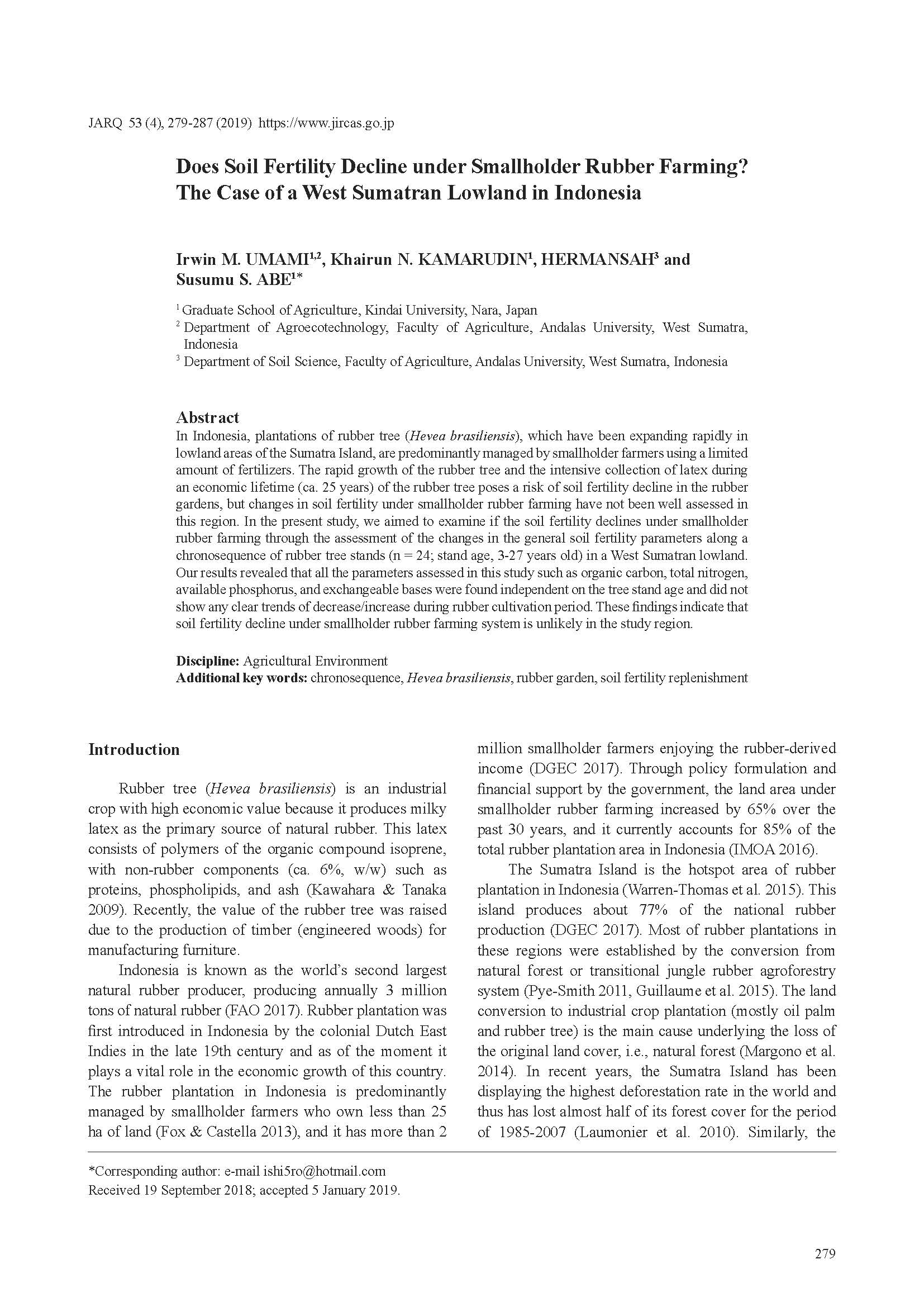Does Soil Fertility Decline under Smallholder Rubber Farming? The Case of a West Sumatran Lowland in Indonesia
JARQ : Japan Agricultural Research Quarterly
| ISSN | 00213551 |
|---|---|
| 書誌レコードID(総合目録DB) | AA0068709X |

本文フルテキスト
jarq53-4_279-287.pdf543.02 KB
In Indonesia, plantations of rubber tree (Hevea brasiliensis), which have been expanding rapidly in lowland areas of the Sumatra Island, are predominantly managed by smallholder farmers using a limited amount of fertilizers. The rapid growth of the rubber tree and the intensive collection of latex during an economic life time (ca. 25 years) of the rubber tree poses a risk of soil fertility decline in the rubber gardens, but changes in soil fertility under smallholder rubber farming have not been well assessed in this region. In the present study, we aimed to examine if the soil fertility declines under smallholder rubber farming through the assessment of the changes in the general soil fertility parameters along a chronosequence of rubber tree stands (n = 24; stand age, 3–27 years old) in a West Sumatran lowland. Our results revealed that all the parameters assessed in this study such as organic carbon, total nitrogen, available phosphorus, and exchangeable bases were found independent on the tree stand age and did not show any clear trends of decrease/increase during rubber cultivation period. These findings indicate that soil fertility decline under smallholder rubber farming system is unlikely in the study region.
| 刊行年月日 | |
|---|---|
| 作成者 | Irwin M. UMAMI Khairun N. KAMARUDIN HERMANSAH Susumu S. ABE |
| 著者キーワード | chronosequence Hevea brasiliensis rubber garden soil fertility replenishment |
| 公開者 | Japan International Research Center for Agricultural Sciences |
| 受付日 | 2018-09-19 |
| 受理日 | 2019-01-05 |
| 巻 | 53 |
| 号 | 4 |
| 開始ページ | 279 |
| 終了ページ | 287 |
| DOI | 10.6090/jarq.53.279 |
| 言語 | eng |
